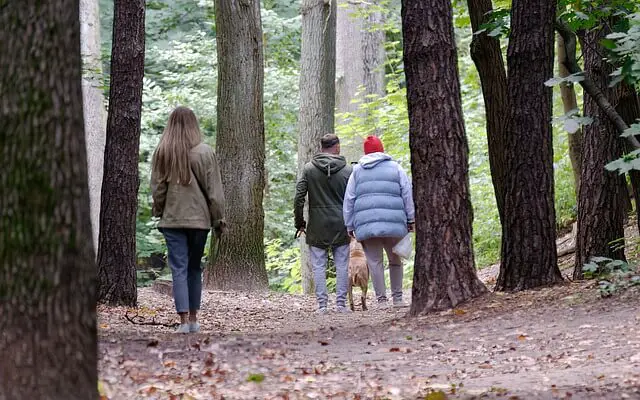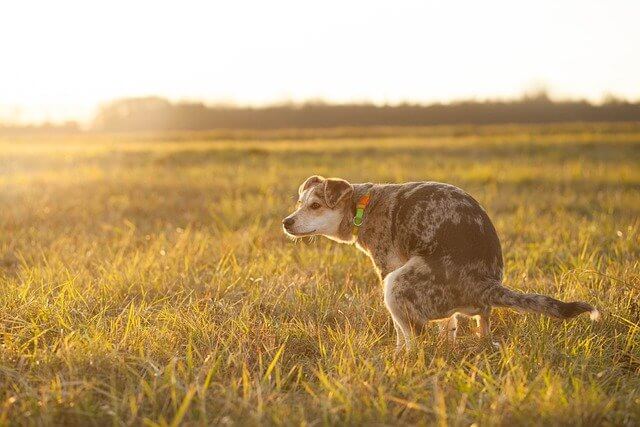Are Dogs Destroying Nature Reserves?
07.02.2022.
New research has shown that the amount of dog feces and urine left in nature reserves is likely to harm wildlife. As a result, excessive soil fertilization with nitrogen and phosphorus on footpaths could reach levels that would be illegal on agricultural land. Research has shown that dogs feed at home and then excrete nutrients while walking, leaving an average of 25 lb of nitrogen per hectare and 11 lb of phosphorus.
This pollution is equal to that carried by the air from agricultural, industrial, and commercial gases, ranging from 11 lb to 55 lb of nitrogen - so the impact of dog feces and urine is significant. However, many dog walkers have the impression that leaving their pets' waste in nature is completely harmless.
Number of dogs in nature reserves
Scientists counted the number of dogs over eighteen months in four nature reserves on the outskirts of Ghent, Belgium - and said the situation would be similar across Europe, which has about 87 million dogs.
Most ecosystems are naturally low-nutrient environments. Excessive fertilization reduces biodiversity, allowing several successful plants, such as silk grass or nettle, to dominate, forcing other plants and wildlife that depend on them.

The research was led by Professor Pieter de Frenne of the University of Ghent, who told The Guardian:
“We were surprised at how high nutrient deposits from dogs can be. Atmospheric nitrogen inputs from agriculture, industry, and transport are rightly receiving a lot of political attention, but dogs have been completely neglected in this regard. ”
Researchers have estimated impermissible levels of nitrogen and phosphorus in scenarios where dogs have to be kept on leashes and can only be separated by 6 feet on either side of the trail.
Dr. Frenne said:
“Those levels are pretty staggering since our study was about nature reserves. Of course, there are many beneficial effects [ of nature walks], both physical and mental, for owners and their dogs, but the disadvantage is the deposit of significant amounts of nutrients. ”
As the number of dogs does not differ in many Western European countries, Dr. Frenne believes that the situation in Ghent is applicable elsewhere.
Meanwhile, the British nature charity Plantlife warned that nitrogen pollution;
"One of the biggest threats to our wild plants, lichens, and fungi, but little is being done to tackle it."
The study, published in the journal “Ecological Solutions and Evidence,” counted more than 1,600 dogs during 500 visits to nature reserves at all times of the day and all days of the week.

These data were combined with known levels of nitrogen and phosphorus excreted by dogs to assess the overall estimate of nutrient deposition from nature reserves. Elimination of dog feces removed almost all phosphorus, but only half of the nitrogen, due to dog urine.
Dr. Frenne explained:
"Urine is, of course, difficult to eliminate."
He suggested that nature reserve managers with sensitive ecosystems consider banning dogs, which are already happening in certain places, to protect wildlife and birds. Previous research has shown that high levels of nutrients can survive even three years after dogs are prohibited.
“An important first step is to make dog owners aware of this effect of soil fertilization,” De Frenne said. "I think a lot of people will pick up the feces themselves."
Rob Stoneman, director of the landscape restoration at The Wildlife Trusts, UK, added:
“Nature reserves are special places for nature conservation, where wildlife and fragile habitats are protected. Obviously, feces are part of nature, but dog feces contain nutrients that can damage the ecology of vulnerable habitats. Wherever you walk your dog, it is important to pick after them, bag it, and throw it in the trash to ensure the lasting protection of these wild areas that we can all enjoy. ”
World Dog Finder team







Share